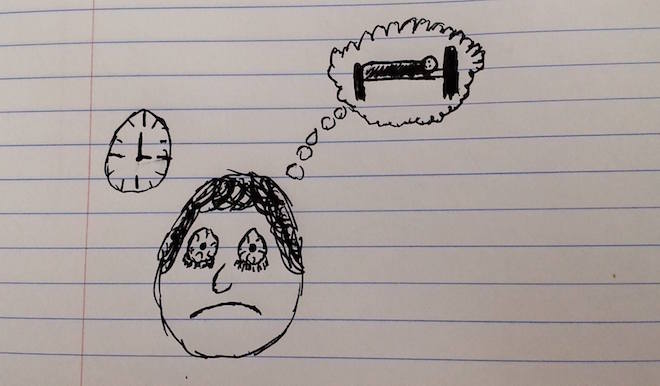How do we learn to take care of each other at Northwestern?
Too often in the daily discourse that constitutes Northwestern’s campus, our default lens of the world is that of exhaustion. We see friends in line at Norbucks, which of course becomes the best opportunity to justify whatever number coffee we’re on for the day. Even when we aren’t caught in this endless feedback loop of poor sleep, poor health, exhaustion and further stress, those health problems are resilient, and one night’s good sleep is not powerful enough to undo the psychic scars of our world. In short, we all continue to struggle, and yet we find ourselves only capable of comparing our stresses to those of our peers, endlessly evaluating who has it worst in the cruel pecking order of collective poor care. So why can’t we all take better care of ourselves together?
For example, I will sleep less than seven hours tonight. To many, such a declaration might already be blasphemous: you’re complaining about getting less than seven hours? I haven’t slept that much in x days! I know that my general health patterns are probably still outliers compared to many of my peers: I generally average at least eight hours of pretty-solid sleep most nights, and many nights can manage nine.
What does that mean? I can’t complain! My benchmark is the friend with the dead-eyed stare who mutters, “I slept three hours last night.” How do I express frustration about my own exhaustion, when his casual declaration of sleeplessness is a “normal” behavior at this institution? Do I fail to register my own slightly-less-than-average night of sleep, severe enough to give me endless headaches that limit my ability to enjoy my classes the next day? Or do I come off as lucky, knowing how much worse he (and so many others) have it?

Why, as a group of motivated, passionate and fundamentally loving people, are we incapable of seeing past our current moment of exhaustion-induced shortsightedness and understanding that it doesn’t need to be this way? Why, when new data was released ranking us as the 15th most sleep-deprived school, did one Facebook friend share it with the caption, “And we still can't even beat U Chicago....”? Does anybody really think we are benefitting in the way we should be from the opportunities we are so privileged to explore? Or, if we all together acknowledged our human weaknesses, our inability to actually “have it all” like we all seem to think everybody else is doing, could we then take a group chill pill for like a minute?
Of course, Northwestern’s frenzied atmosphere demands that we respond: We live in a competitive world! We want to run this shit, and to do that I need x internship and y extracurricular or else I’ll never get it! That voice is powerful! It speaks to us all constantly, without ceasing. It manifests itself in different forms for all of us. And yet, there is no denying that it is there, just as much a member of this campus as you or I, the product of our collective fantasies, fears and desires for life after graduation.
But what if we resisted its siren calls? What if we, as a group of interconnected, powerful people, stopped and said: No! What if, instead of accepting that our campus climate must perfectly reflect the stresses and rat race of the “real world” simply because that’s the way it exists, we resist that pressure, and show ourselves that we can all take a step back and still be pretty fucking dope people?
There is already enough suffering in this world. As a university student, it can be so easy to lose sight of the bigger picture of the outside world, and how our problems may seem like incredible privileges to those on the outside of the system. That’s certainly a fair point, and I know my own struggles pale in comparison to my parents, who both work long hours at low-paying jobs just to make ends meet.
But our lives now still reflect on the world we are agents in. We are privileged to be at Northwestern for so many reasons, and yet that does not mean we should not be capable of critiquing it and making it better and more comforting for all of us, especially students who already face marginalization on this campus. No student should have to feel guilt for their somewhat-exhausted state, knowing that their best friend just pulled an all-nighter before an exam. We can and must make a culture around patterns of mutual love and compassion, a climate in which we hold our friend’s mental health, not their number of clubs or accomplishments, first in our minds. I know this is a trait that does not develop automatically, and yet we are all so capable of creating this environment, one that can only build on itself once the ball gets rolling. So let’s get that ball rolling.
What we must realize is that we are all in the same boat, even as we struggle to realize it. Honesty and openness is what it will take to break the stigma of feeling slightly-less-but-still-very shitty, and not knowing how to talk about it. If we are strong enough to tell those around us about our struggles directly, it will let others feel more comfortable expressing those same buried feelings. I am convinced that, as a student body, such a level of directness could be contagious. If you feel alone in your moment of weakness, especially as we hit midterm season, please know that, no matter how hard we all pretend, we are all overburdened by this university. So again, I ask: why can’t we all take better care of ourselves together?
Watch this video on how sleep deprivation affects your body